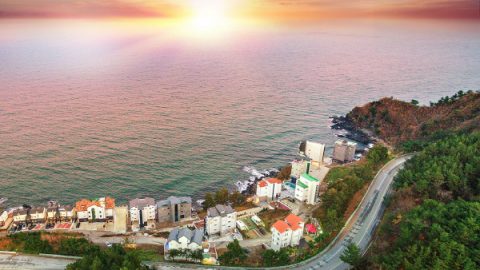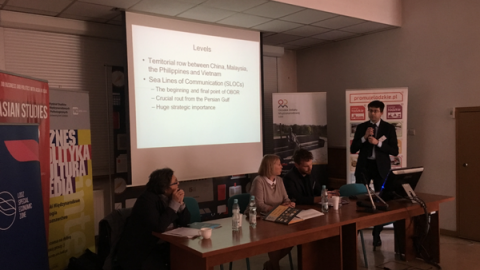A group of Japanese envoys arrived in China after being shipwrecked on the coast of Yangzhou, China, in A.D. 838. Ennin, who was honored with the name of Great Monk, was a member of the mission that Japan dispatched to China to build cooperative relations with the Tang Dynasty.
The diary of Ennin, that recorded his travels in China, contains frequent mention of the people of Silla, a kingdom that then existed on the Korean Peninsula. According to Ennin, the Silla people who lived in Tang resided in Shantong and many other inland canal areas of China, forming a collective residence.
These people are referred to by Ennin as the people who controlled almost all the marine trade in East Asia, including the Korean Peninsula and China.
It was a Silla man who helped Ennin with language. And Silla men aided the Japanese envoys in every aspect, from procurement to negotiations, so that they could get to Zhang-an, the capital city of Tang, from the city they landed in due to the shipwreck. The pre-eminent existence of Silla people is due to the Silla admiral called Jang Bo-go, who vanquished enemies on the sea, and to the continuous progress to the sea of other people from the Korean Peninsula.
These people were called Silla people, but their nationalities were not confined to Silla.
The history of Korean people who traveled a path to the sea indicates that Korean people are bound to the sea. The Korean Peninsula had been home to various cultures arriving by sea since the Stone Age, according to a book called, The Sea Was a Cultural Highways. Another dominant country in the history of the Korean Peninsula, Goguryeo, also used naval force when it waged wars against Tang and received Buddhism.
The other country, Balhae, conducted cultural exchanges with Japan through the sea. Baekje, a country that maintained a close relationship with Japan, also had an intimate relationship with the sea, even to the extent that it conducted business in China.
Based on all this watery history, we can say that the Korea-U.S. FTA signed on April 2 is an important step for Koreans to go down to the sea once again, for we can now approach the superpower of marine culture.
In the broad sweep of civilization, the Korean intimacy with the water, which seems to have been forgotten for a long time, may be invoked once again.
The repercussions of the FTA may affect some issues in agriculture.
But the historical connection between Koreans and the sea is significant and worth honoring.
The writer is a deputy international news editor of JoongAng Ilbo.
By Yoo Kwang-jong [kjyoo@joongang.co.kr]




